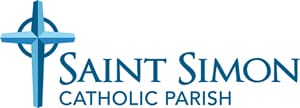Over the last many months, many of us have heard about the Global Synod on Synodality but we have heard little in our own local Diocese of San Jose. What we do hear seems to be confusing! So let me spend a few moments trying to explain some of the different aspects of what will be happening in the months and years ahead.
In October, 2021, Pope Francis formally announced and opened a process called “a synod on synodality,” officially known as “Synod 2021-2023: For a Synodal Church—Communion, Participation and Mission.”
The word derives from an ancient Greek term that means “coming together” or “traveling together.” Ancient Christians developed a custom of local leaders coming together to pray and make decisions about matters affecting all the Christian communities in a region. They gathered in the faith that their prayers and discussions would reveal God’s will and the way to achieve it.
The synodal process of gathering the Church leaders together is as ancient as the Church itself even if it has not been explicitly called “synod.” Most often the process happens at the local level in pastoral councils, diocesan councils, bishop’s conferences; but sometimes bishops gather from all over the world in an ecumenical council such as the Second Vatican Council.
Over the centuries the power of the papacy grew and ecumenical councils were called less often (only two in the last 400 years) and regional synods became nonexistent completely. But at the Vatican II Council in 1960’s, the importance of bishops as heads of their local dioceses was emphasized and the need for cooperation with one another was further developed. As a “college” under the Pope, all the bishops along with the pope were responsible for the governance of the worldwide Church.
To deepen this trajectory, Pope Paul VI created a permanent structure for a Synod of Bishops, with a secretariat in Rome and a General Assembly gathered regularly by the pope. Since 1967, the popes have brought this assembly together 18 times: 15 “Ordinary Assemblies” and three “Extraordinary,” in addition to a number of “Special Assemblies” involving particular regions of the world.
Pope Francis has shown special interest in the Synod of Bishops since the beginning of his papacy in 2013. The following year, he convened an “Extraordinary General Assembly,” outside the usual three-year cycle, on “the vocation and mission of the family.” The assembly talked about controversial issues such as welcoming to communion couples living outside church-sanctioned marriages. These discussions continued into an “Ordinary Assembly” in 2015.[i]
2015 also marked the 50th anniversary of the Synod of Bishops Pope Francis gave said, “The word ‘synod,’ is about cooperation. A synodal Church is a Church which listens. The goal of mutual listening has been the goal of much of the church’s renewal since Vatican II.
Since then, Francis has taken steps to give the church examples and a concrete framework for a more “synodal church.” In 2018, he issued new regulations that encourage much wider consultation with members and organizations of the church at all levels as part of the synod process. Largely Pope Francis sees us a Church that does three things: encounter, dialogue and discern. Encounter to all especially to those on the periphery. Dialogue with them and genuinely listen to their hearts’ concerns. Discern how best to move forward in the context of all we have heard.
The current “Synod on Synodality” is the culmination of all this effort to bring a greater degree of openness, collaboration and mutual listening to the church. Unlike previous synods, this one officially begins in dioceses all over the world, with opportunities for mutual consultation at every level and among many different church organizations.
When the General Assembly meets in 2023, its task will be to prayerfully consider how to move forward as “a more synodal Church in the long-term” – a church that “journeys together.”
So how can we participate in this “synod on synodality.” In the weeks ahead, we will be asked to participate in this process both in person and online. We have an opportunity to have our voice heard about where we believe the Church should move globally and how we should be a synodal church. Please watch for opportunities and participate as best you can. Stay tuned for more details.
God Bless
Fr. Brendan
[i] Fr. William Clark, The Conversation, “What is Synod of Bishops? https://theconversation.com/what-is-the-synod-of-bishops-a-catholic-priest-and-theologian-explains-168937


